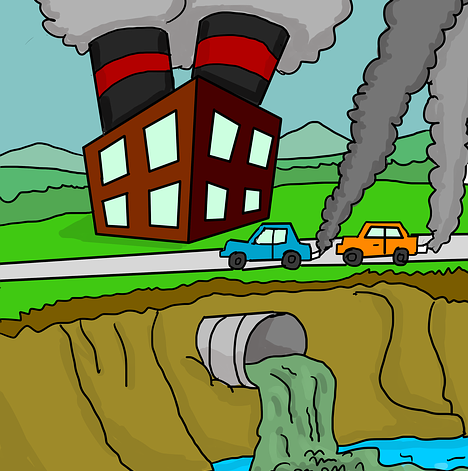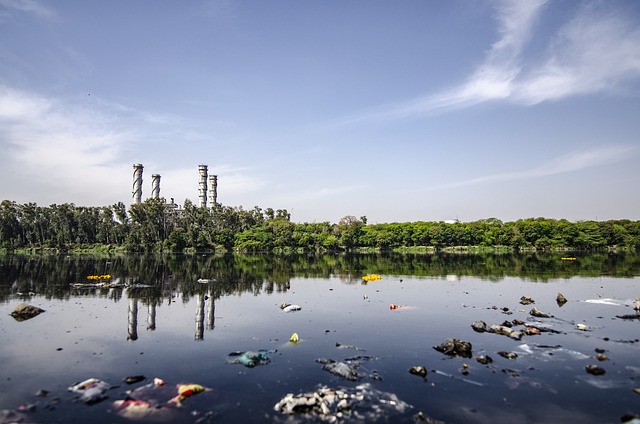Introduction
Soil Health: It is defined as the capability of soil within the ecosystem to act as an essential living system that encourages sustainable growth of microbial flora, animals, and plants and improves the environmental conditions of air and water. Soil health plays an important role in removing greenhouse gases from the atmosphere.
To know more about soils of Pakistan and their types etc, check out: Types Of Soils In Pakistan And Their Location And Properties.
Components of Soil Health: The key component of soil health are microbial flora in the soil. Common examples are nematodes, cyanobacteria, and mycorrhizal fungi that provide nutrients to plants, increase crop yield and help in soil nutrient cycling. The presence of microbial flora in the soil makes plants resistant to environmental stresses.
Soil Biodiversity: It is defined as the diverse variety in the soil ecosystem. It involves ecological complexities from genes to communities and soil microhabitats to landscapes.
Agricultural Sustainability: It is defined as the capability of a crop production system to generate continuous edible products without causing any harm to the environment.
Agriculture sustainability is directly linked with soil health and soil biodiversity.
For more info: Biodynamic Farming Benefits and Importance for Environment
The Condition of Soil in Pakistan
The agriculture sector in Pakistan holds great economic importance contributing to 21% of GDP. Million of people are associated with this sector for their livelihoods. Currently, the world is facing environmental issues like increasing population, food insecurity, unsustainable agriculture practices, climate change, etc. All these factors are causing damaging effects on the productivity of the soil.
In Pakistan, the situation is the same, and climate change is showing its effects on almost every sector in the country. Soil conditions are not good in Pakistan due to the old traditional agriculture practices.
Also read: The Impacts of Climate Change on Agriculture in Pakistan
The Factors Affecting Soil Health in Pakistan
The major factors responsible for soil degradation are unproductive and contaminated soil, soil erosion, soil salinity, and waterlogging. Along with these factors, prevalent issues are decreasing organic matter content and scarcity of essential minerals. Soil salinity is a key issue in the agriculture zone of Pakistan.
Read: Waterlogging and Salinity in Pakistan
Soil Salinity in Pakistan
The content of salt in the soil is defined as soil salinity.
The soil in Pakistan is suffering from environmental issues like waterlogging and salinity. High concentrations of salts are getting accumulated in the soil due to the absence of a drainage system and poor irrigation practices. The outcomes of these inputs are often dangerous for crop yields.
Farming Practices that can Improve Soil Health in Pakistan
Organic farming and tillage are effective farming practices that can enhance soil health by growing the microbial flora, their activity, and diversity. Conventional tillage requires labor costs and inputs while conservation tillage comes with the potential capability to enhance profitability with minimum labor costs and inputs.
Organic farming is an environmentally friendly technique that can immediately reduce the requirements of inputs and hence it has economic benefits as well.
There is a lot of scope for organic farming in Pakistan. A published report has mentioned that less than 1% of areas in Pakistan are contributing to organic farming if compared with the world.
For further information on this topic read: Sustainable Agriculture Practices and their Advantages
Conclusion
Pakistan is an agricultural country and has been blessed with a diverse variety of soil. The populous provinces of Pakistan are Punjab and Sindh where land areas are used for agriculture practices. Soil health is being degraded in Pakistan due to urban sprawl, climate change, overexploitation of natural reserves, land pollution, and depleting water reserves. All these conditions can lead to food insecurity.
You might also be interested in: What is Rhizoremediation?- Methods, Benefits and Drawbacks
Recommendation
Improved irrigation systems, organic farming, and conservation tillage have the potential to enhance soil productivity. An awareness campaign at the provincial level can help and educate farmers about farming practices. Soil salinity issues can be resolved by desalination plants.
Also, check out Dire Need of Sea Water Desalination Plants in Sindh Pakistan
I hope you all liked this post! Please comment below if you have any suggestions, comments, or feedback! We at #envpk love hearing from our readers! Thanks!




